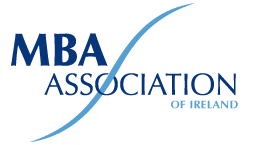Master of Business Administration (MBA)
Finance


Overview
The MBA (Finance) awarded by QQI, provides theoretical and practical models and perspectives, which will provide a basis for analysing financial information and for applying the analysis in making informed financial decisions. The decision making aspect is developed in Corporate Financial Management and the complexities and dynamics of international financial markets are explored in the Global Financial Markets. The MBA (Finance) graduate will perform data analysis and advise senior managers on profit maximising strategies. Financial management and an awareness of financial markets is key to the sustainability and growth of an organisation who must, on an ongoing basis, consider the potential consequences of management decisions on profits, cash flow on the financial condition of the company.
Click here to read one student's experience with the MBA programme at DBS.
Aims of the Programme
Graduates will be able to critically evaluate theory and practice of corporate financial management for strategic business decision‐making. They will also be able to demonstrate critical awareness of international practices and policies in financial markets within changing global market dynamics.
Key Features of the Programme
This unique programme allows you to study the pure MBA, or choose a specialist route for your MBA award within the following programmes: HRM; Project Management; Finance; Information Systems; Cloud Computing or Marketing. This ensures students are afforded the widest choice of specialisms from which to choose. A practitioner focus is part of this programme, and industry-led workshops and guest lecturers keep information current and applied.
This MBA includes:
• Personal, academic and professional development.
• Lectures and assessment methods that apply the business knowledge required for students to perform as an effective manager in any organisation.
• Through, extensive study of key issues in business theories students will be capable of evaluation and application of important global management issues which impact on organisational effectiveness and performance.
• Knowledge and understanding of global business, most especially on issues such as globalisation, standardisation and customisation of products and services.
• Skills and knowledge to inform you how an organisation is best managed in a changing world.
With these in mind, the programme is designed to provide you with relevant knowledge, so that you are familiar with the latest theoretical and practical developments relating to business management and development.
Entry Requirements
The minimum entry requirements for the Master of Business Administration are:
• Level 8 primary undergraduate honours bachelor degree with a minimum Second Class Second Division classification (2.2) from a recognised third level institution in any discipline from a recognised third level institution (or equivalent); or
• An equivalent professional qualification such as ACCA or CIMA.
• For applicants whose first language is not English and who have not previously undertaken a degree taught through English, evidence must be provided of proficiency in English language equivalent to B2+ or above on the Common European Framework of Reference for Languages (CEFRL). This must be evidenced through a recognised English Language test such as IELTS, Cambridge Certificate, PTE or DBS English Assessment. Test certificates should be dated within the last two years to be considered valid.
• GMAT examination is a mandatory requirement for all applicants who do not hold an Honours Bachelor Degree (Level 8) with a minimum of second class second division classification.
The programme is aimed at learners who wish to specialise in business administration with a view to entering industry in a high-level managerial role, to progress professionally or to undertake further business studies. Learners will achieve the business expertise to lead an organisation to strategic decision making ensuring a maximum return on investment across each department. Learners will be capable of dealing with diverse intrinsic and extrinsic business realities in a creative manner to ensure sustainability and growth.
Applicants who do not have a Level 8 qualification at a 2.2 award level and who have at least 3 years’ work experience may also be considered through the college’s normal RPL procedures. Relevant professional experience may be taken into account and individuals will be assessed on a case-by-case basis through DBS RPL procedures.
Delivery
For full-time students, all learners are expected to attend in person in class.
For part-time students all classes will be delivered online.
Student Testimonial
"I chose DBS because of the in-depth one-on-one teachings from the professional lecturers and carefully structured modules which makes learning comprehensive.
The global financial crash of 2008 led me to the Master of Business Administration in Finance. I was interested in safeguarding my financial future and that's what I am doing at the moment. Once you have a clear goal, with much enthusiasm, it can be achieved.
Dr. Richard O' Callahan is best thing to happen to me at DBS. He tutored me on financial derivatives.
DBS gave my life a sense of direction and purpose. I am living my dream today. If you want to gain knowledge that will give you an edge in life, then DBS is the place to be. I feel optimistic for the future which now looks bright."
Oscar Ugboh
Master of Business Administration (Finance)